Ten years after bin Laden’s death, the US military’s "anti-terrorism" was "more anti-terrorism"
CCTV News:After the "September 11th" incident in 2001, the United States sent troops to Afghanistan in the name of "anti-terrorism", and then continued to "export unrest", which made the Middle East turbulent for a long time. On May 1, 2011, US Eastern Time and May 2, 2011, Beijing time, then US President Barack Obama announced that the United States believed that the "9.11" incident was behind the scenes — — Osama bin Laden, the leader of Al Qaeda, was killed by American troops in Abbottabad, Pakistan.
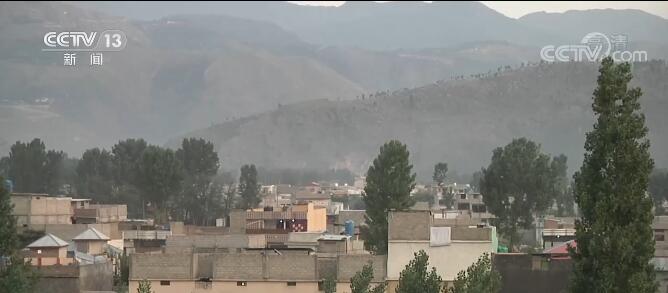
The small village where bin Laden was hiding.
Now, it has been ten years since the United States announced the killing of bin Laden, and the US military has begun to withdraw from Afghanistan. Has the so-called "anti-terrorism" goal of the United States been achieved? Ten years after bin Laden was killed, the reporter from the General Station visited Abbottabad again.
Headquarters reporter Cui Ru:I am now in Abbottabad, Pakistan. There used to be a small building with a courtyard next to me. Ten years ago, US Navy SEALs attacked here and killed Al Qaeda leader Osama bin Laden. After bin Laden was killed, the small building was demolished and the yard became a cricket ground for children.
People: peace has not yet reached the United States to export turmoil for self-interest
In the village, some insiders were interviewed by reporters.
Local resident Nayaz Bangash:People say that there was peace after bin Laden’s death, but now there is no peace at all. There is no peace in Afghanistan or Pakistan. Kidnapping and killing are everywhere.
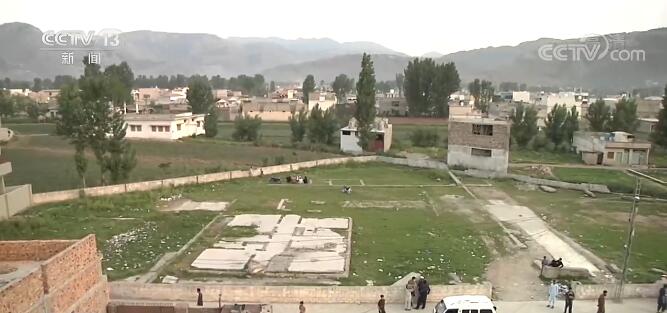
The building where bin Laden was killed has been razed to the ground.
Tanori, a businessman who lives opposite the demolished building, thinks that the so-called killing of bin Laden is just a "propaganda war" in the United States. Tanori said that attacking other countries with "fabricated stories" has always been a means of the United States.
Local resident Tanori:The United States is slandering Pakistan. They have searched many countries. They think bin Laden is here, but bin Laden is not here. The United States is just making excuses for sending troops to Afghanistan and Iraq, just as they went to Libya to kill Libyans after fighting Iraq. Everything was for the benefit of the United States, and the game ended when it was unprofitable. Before they tried to end Afghanistan, they threw out the story of bin Laden. They announced that they had killed bin Laden just to end the war.
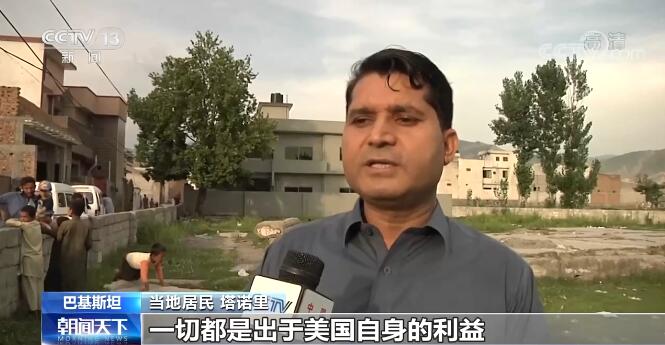
Headquarters reporter Cui Ru:After the "9.11" incident before 2001, the United States successively sent troops to Afghanistan and Iraq in the name of counter-terrorism to overthrow the Taliban and Saddam Hussein’s regime. The United States has also deeply intervened in the Middle East, bringing profound disasters to the whole Middle East. In the 20-year war, the United States has not been safe, but has become more and more fearful. What nourishes the monster of terrorism is precisely the hatred planted by American war policy and hegemonism.
People: peace is too far away. American troops bring chaos
In Kabul, the capital of Afghanistan, many local people also said in an interview with the general station reporter that in 2011, the United States announced that the killing of bin Laden did not improve the security situation in the region, and the United States’ actions at that time were only for its own interests.
Many Afghans say that their lives have been completely disrupted. Apart from terrorist attacks, daily theft and robbery also bring great danger to their lives. When it comes to expectations for the future, everyone invariably says two words — — "Peace".
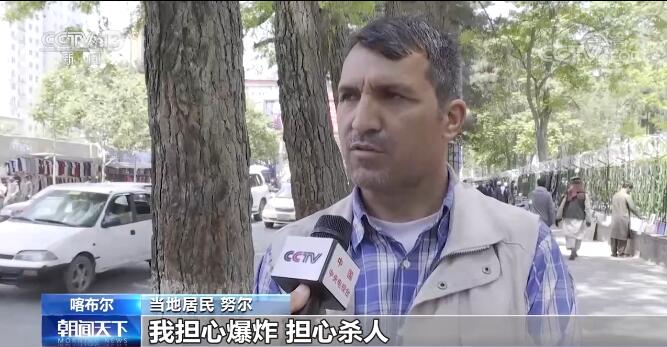
General Station reporter Li Shuangxi:From the eyes of Afghans, what I see is the longing for peace and disappointment with the United States. For them, the significance of the "ultimate revenge" that killed bin Laden is extremely limited, and the achievements of the US garrison for nearly 20 years are only a more chaotic situation.

The cloud of terror in Afghanistan remains strong.
It has been ten years since the United States announced the killing of bin Laden. However, as Afghans said, the security situation in Afghanistan and the whole region has not returned to calm, and the shadow of terrorist attacks remains strong. After the "9.11" incident in 2001, the United States sent troops to attack Afghanistan and overthrow the Taliban regime. In 2011, the United States announced the killing of bin Laden, and Al Qaeda gradually lost its absolute influence in Afghanistan. However, the gap left by Al Qaeda has been filled by more newly emerging terrorist organizations.
This is an attack video recorded by a gunman himself, which has been widely circulated on social networks in Afghanistan recently.
General Station reporter Li Shuangxi:The video shooting we just saw took place on the streets of Kabul, the capital, and the attacker was already dead. There are many similar things, and there is evidence in our office. Look at this bullet hole on the wall, and my colleagues in the office wrote the time when it happened with a pen — — About three years after bin Laden was killed, there was an unexplained gun battle in the street next to the office. One of the bullets broke the glass and entered the wall. After this incident, all the windows facing the street in the office were nailed up by steel plates, so the light in the room is a little dim now.

A bullet hole in the office wall
According to experts in Afghanistan, there are currently about 20 terrorist organizations active in Afghanistan, which is followed by social unrest, gun proliferation and many other problems.
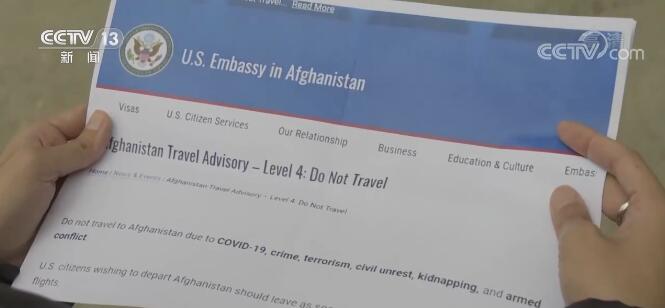
The latest travel notice issued by the US Embassy in Afghanistan to American citizens
General Station reporter Li Shuangxi:This is the latest travel notice issued by the US Embassy in Afghanistan to American citizens. It says that there are risk factors such as epidemic, crime, terrorism, civil strife, kidnapping and armed conflict in Afghanistan. This is indeed the case in Afghanistan now. The so-called terror has long been not only terrorism in the traditional sense, but also the daily life of local people faces many challenges.
If the US anti-terrorism policy is not changed, it will be difficult to escape the "more anti-terrorism" cycle.
It has been ten years since the United States announced the killing of bin Laden, and it has been nearly 20 years since the United States launched the so-called "war on terror" in Afghanistan. However, some analysts pointed out that if the US government can’t get rid of the long-standing anti-terrorism practice of attaching importance to military affairs and neglecting diplomacy, it will be difficult for the United States to escape from the strange circle of "more anti-terrorism".
In the past few decades, a cornerstone of American foreign policy has been "military means first." All countries that have been interfered by the United States in their internal affairs, including Afghanistan, Libya, Iraq, etc., have experienced turmoil without exception. While the United States is "destroying" militarily, it lacks the follow-up diplomatic "reconstruction" efforts, so countries such as Afghanistan and Libya have long been caught in domestic turmoil.
The war in Afghanistan has lasted for 20 years, and the United States once stationed more than 100,000 troops in Afghanistan, but this could not defeat the Taliban. The US military’s "anti-terrorism" is "more anti-terrorism and more fear". In the view of former German Foreign Minister Fischer, apart from killing several leaders of terrorist organizations and weakening some extremist organizations, the US "anti-terrorism" war in Afghanistan is almost fruitless. "Terrorism has not been defeated militarily or ideologically, and remains a consistent threat to the West."
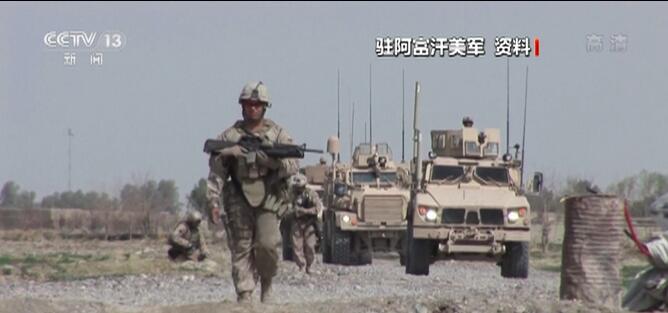
At the same time, the United States has been "half-hearted" in promoting Afghanistan’s economic and social development. Due to frequent wars and turmoil, Afghanistan’s industrial base is still weak, and agriculture and animal husbandry are still the main force of the national economy. The education system in Afghanistan has collapsed, with the illiteracy rate as high as 65% and that of women as high as 96%. The younger generation is unable to learn knowledge and is more susceptible to terrorism.
Analysts pointed out that the mistake of the US anti-terrorism policy lies in the fact that the US did not realize that any sustainable military achievement could not be achieved without the successful support of Afghanistan’s national construction, which can only be achieved through diplomatic means.
The long war in Afghanistan has brought profound lessons to the U.S. government. U.S. drones and missiles alone cannot solve the anti-terrorism problem, and comprehensive measures must be taken to address both the symptoms and the root causes.